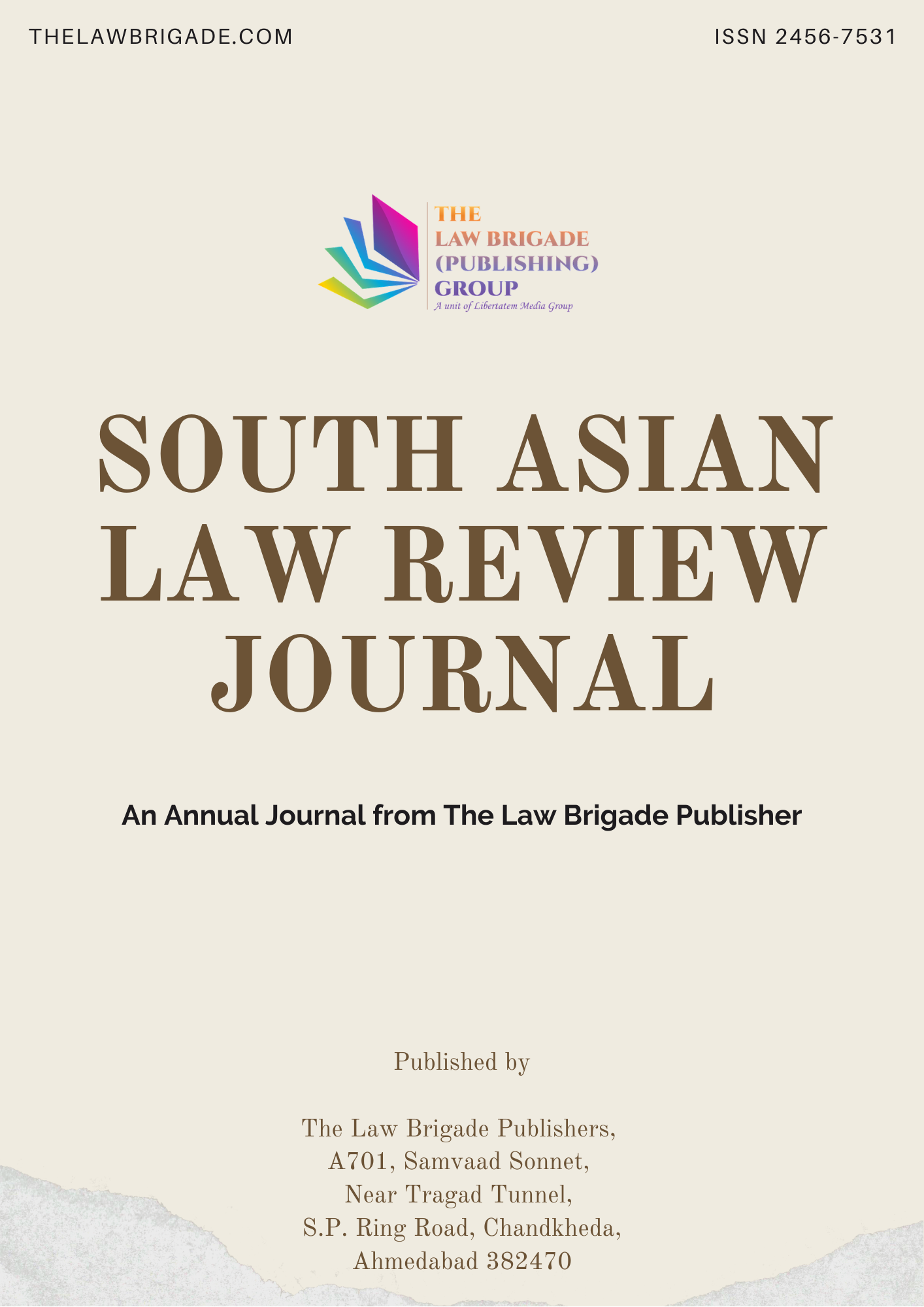We invite submissions of original, unpublished manuscripts on a broad range of legal topics and allied research areas, including legal history and legal English.
Submission Types and their Section policy:
- Articles: Submissions in this category should be original, in-depth analyses on pertinent legal issues, showcasing comprehensive research and a strong argument supported by authoritative sources. Articles should range between 5,000 to 10,000 words, including footnotes, and must adhere to the journal’s formatting guidelines. We encourage the use of comparative perspectives and interdisciplinary approaches where appropriate.
- Research Work/Academic Projects: We welcome high-quality research papers and academic projects from both undergraduate and postgraduate students. These submissions should demonstrate rigorous academic standards, with a word count of 4,000 to 8,000 words. Papers should provide novel insights or advancements in legal theory or practice and must include a clear methodology and substantial literature review.
- Case Comments/Analyses: This section is dedicated to critical commentaries on recent or landmark court decisions. Submissions should be between 2,000 to 4,000 words and focus on the implications of the judgment, its legal reasoning, and its impact on future jurisprudence. Authors should provide a balanced analysis, highlighting both the strengths and potential weaknesses of the decision.
- Case Reviews: We invite detailed reviews of significant cases that have influenced legal doctrines or practice. Reviews should be 3,000 to 5,000 words and provide a thorough examination of the case background, legal issues, judgment, and subsequent implications. Authors should strive to contextualize the case within the broader legal landscape.
- Book Reviews: Submissions should critically evaluate recent publications in the field of law. Reviews should be between 1,500 to 3,000 words and offer a comprehensive assessment of the book’s arguments, contributions to the field, and overall quality. We encourage reviewers to consider the book’s relevance to current legal debates and its utility for practitioners, scholars, and students.
- Translations: We accept translations of important legal texts that are not readily available in English. Translations should be accompanied by a brief commentary (1,000 to 2,000 words) explaining the significance of the text, its original context, and its relevance to contemporary legal issues. Translations must be accurate and faithful to the original language.
- Essays: Essays should present thoughtful, concise arguments on pressing legal issues or theoretical questions. With a word limit of 3,000 to 5,000 words, essays should be provocative, well-reasoned, and supported by relevant legal sources. We welcome creative and innovative approaches to traditional legal topics.
- Short Notes: These submissions should be brief, focused discussions on specific legal points or recent developments. Ranging from 1,000 to 2,000 words, short notes should offer clear, succinct analysis and highlight the practical implications for legal practitioners or scholars. They should be timely and address emerging trends or new legislation.
- Critiques: We seek critical essays that challenge existing legal norms, theories, or practices. Critiques should be 2,500 to 4,000 words and provide a well-argued, critical perspective supported by solid research. Authors should aim to stimulate debate and propose alternative viewpoints or solutions to the issues discussed.
Abstract:
All submissions must be accompanied by an abstract of 250-500 words.
Co-Authorship:
Co-authorship is permitted for any submission type. Your submission can have a maximum of 5 authors. Acknowledgement emails will be sent to all contributing authors.
Certificate of Publication:
Each author will receive a separate publication e-certificate post the publication of their manuscript. We do not provide hard copies of certificate.
Author Guidelines:
- Manuscripts should be submitted anonymously. Author information (name, designation, email, contact details) will be collected through a separate submission form.
- Submissions must be original, written solely by the author(s), and in English. They must not be under consideration for publication elsewhere.
- Please review the journal’s Copyright Policy before submission.
- Plagiarism is strictly prohibited. A Turnitin similarity index of 10% or less is acceptable. No AI-generated content is permitted. Refer to the Plagiarism & AI Policy for details.
Word Limit & Format:
- All submissions must be accompanied by an abstract.
- Font Style: Book Antiqua
- Font size: 10 pt. for Content & 8p pt. for footnote/endnote/bibliography
- Line spacing: 1.5
- Word limits: refer to the section policy above
- MS Word format is required.
Citation Method:
- Harvard (Author-Date) citation style is required. You may download the style guide here.
Submission Process:
- A single online submission form is available here. Select the appropriate journal for your submission. Submissions sent directly to our email address will not be accepted.
- Complete the submission form accurately. Make sure you mention your complete designation in the format [designation, organization/institute, city, state, country].
- ORCiD id is recommended. If you do not have an ORCiD account, please register yourself for free here. It is not mandatory but recommended. Correct Format of your ORCiD Id is [https://orcid.org/0000-0002-5672-234X]
- Acknowledgement emails confirming receipt will be sent to all authors.
Double-Blind Open Peer Review:
- Authors are responsible for ensuring accurate references and citations. Submissions must not infringe copyright or be defamatory, obscene, or unlawful.
- Authors will hold the copyright of published work under the Creative Commons Attribution-ShareAlike 4.0 International (CC BY-SA 4.0) license. Learn more about our licensing policy here.
- The publisher reserves the right to publish submissions on its websites, partner websites, and indexing services. Author attribution will be provided.
- Submissions undergo a double-blind open peer review process. Refer to the Peer Review Policy Page for details.
- The Editorial Board and reviewers reserve the right to modify submissions to maintain quality standards.
- The Board will notify authors of decisions and relevant information via email.
We look forward to receiving your submissions!





